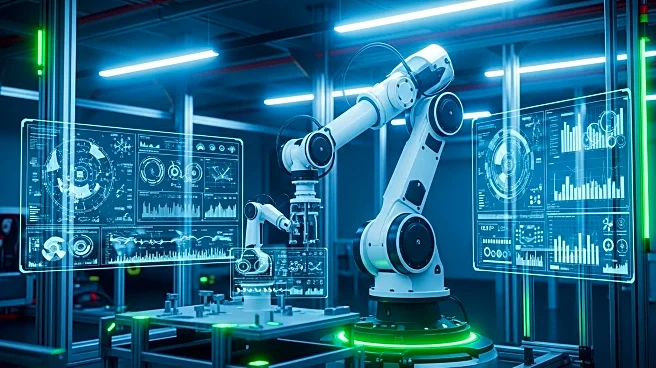What is the story about?
What's Happening?
Manufacturers are increasingly adopting consumer-driven manufacturing models, which rely on real-time consumer demand and feedback to guide production decisions. This approach contrasts with traditional manufacturing, which is based on forecasts and historical data. According to Liya Getachew, principal at Sendero Consulting, consumer-driven manufacturing requires agile production lines, leveraging consumer insights, and translating data into actionable production decisions. Key tools for this transformation include real-time data platforms, AI, and analytics, which enable manufacturers to respond quickly to market shifts and optimize inventory.
Why It's Important?
The shift towards consumer-driven manufacturing represents a significant change in the industry, driven by the need for greater flexibility and responsiveness to consumer demands. This model allows manufacturers to reduce waste, improve efficiency, and better align production with market needs. By leveraging technology and data, companies can enhance their competitiveness and adapt to rapidly changing consumer preferences. This approach also empowers cross-functional teams to make decisions, fostering innovation and collaboration within organizations.
What's Next?
As more manufacturers adopt consumer-driven models, the industry is likely to see increased investment in technology and data infrastructure. Companies may focus on developing modular production systems and enhancing their supply chain visibility to support this transformation. The adoption of AI and analytics will continue to play a crucial role in enabling manufacturers to anticipate market trends and optimize their operations. This shift could lead to a more dynamic and responsive manufacturing sector, better equipped to meet the demands of modern consumers.

















